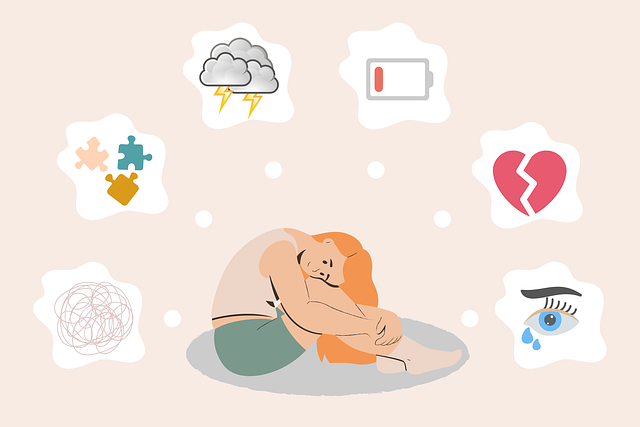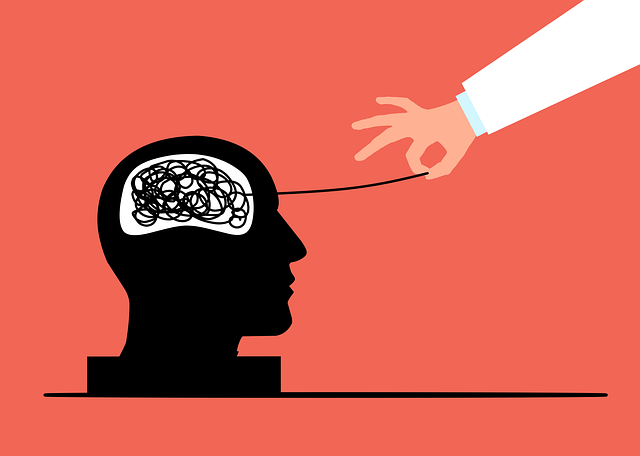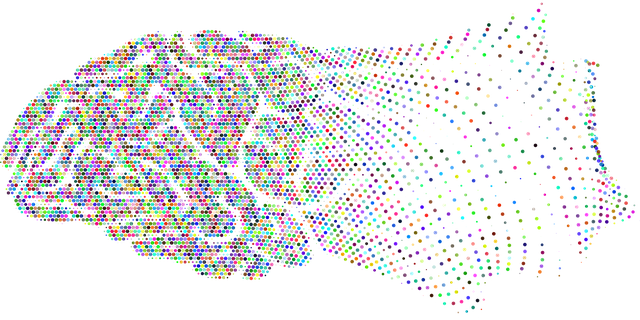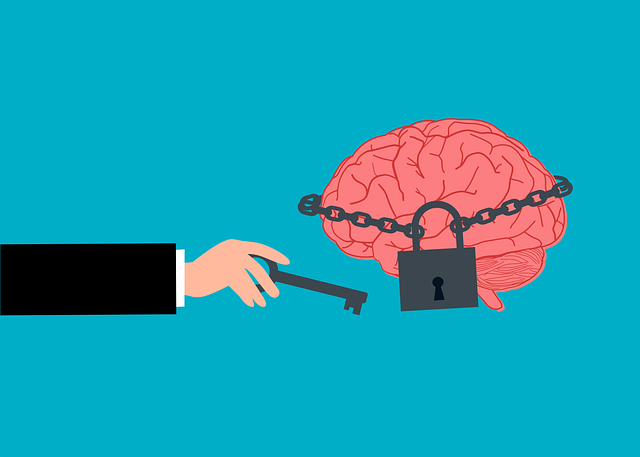The text highlights the detrimental impact of mental illness stigma, creating barriers to support and treatment. Organizations like Aurora Terminal Illness Therapy aim to break down these obstacles through comprehensive care and open dialogues about mental health. Stigma reduction requires a multi-faceted approach: policy advocacy, community outreach, education, and sharing recovery stories. By normalizing conversations and providing resources, initiatives like Aurora Terminal Illness Therapy foster empathy, reduce fear of judgment, and encourage individuals to seek help without stigma's hold.
Mental illness stigma reduction is a pivotal aspect of fostering better mental health outcomes. This article delves into the profound impact of societal stigma, exploring barriers that prevent individuals from seeking support. We present a comprehensive approach to reduce stigma through education and awareness campaigns, emphasizing the role of empathy and recovery narratives. By examining strategies employed by organizations like Aurora Terminal Illness Therapy, we aim to illuminate paths towards a more accepting society where mental health is treated with the same compassion as physical health.
- Understanding the Impact of Stigma on Mental Health: Exploring the Barriers to Support
- Strategies for Reducing Stigma: A Comprehensive Approach
- The Role of Education and Awareness in Shaping Public Perception
- Celebrating Recovery and Promoting Empathy: A Journey Towards Acceptance
Understanding the Impact of Stigma on Mental Health: Exploring the Barriers to Support

The stigma surrounding mental illness can have profound effects on an individual’s well-being. It often prevents people from seeking help and support, leading to prolonged suffering in silence. This barrier to treatment is a significant concern, especially for those facing severe or chronic conditions. The impact of stigma can range from social isolation and fear of judgment to reduced access to quality care. Many individuals with mental health challenges struggle to disclose their struggles due to the associated stereotypes and negative perceptions, creating a complex web of secrecy that hinders recovery.
Efforts to reduce this stigma play a crucial role in fostering an environment conducive to open conversations about mental health. Aurora Terminal Illness Therapy, for instance, focuses on providing comprehensive care by addressing not just symptoms but also the societal and personal barriers that prevent individuals from embracing their emotional intelligence and adopting effective stress reduction methods. By challenging these barriers, such initiatives aim to normalize discussions around mental illness, ultimately encouraging people to seek help without fear of stigma-related consequences.
Strategies for Reducing Stigma: A Comprehensive Approach

Stigma reduction efforts for mental illness require a comprehensive approach that tackles societal perceptions head-on. One effective strategy is to foster open dialogues and raise awareness through educational programs, media campaigns, and community events. These initiatives aim to humanize experiences with mental health challenges, promoting empathy and understanding. For instance, Aurora Terminal Illness Therapy can organize workshops and panel discussions featuring individuals who have successfully managed their conditions, offering relatable narratives that challenge stereotypes.
Additionally, policy analysis and advocacy play a pivotal role in reducing stigma. Mental Health Policy Analysis and Advocacy groups can push for inclusive legislation that protects the rights of those with mental health issues. This includes ensuring equal access to quality healthcare services, providing accommodations in educational and workplace settings, and promoting anti-stigma campaigns in public spaces. Community Outreach Program Implementation is another powerful tool, where local initiatives focus on connecting individuals with support networks, peer mentoring, and resources tailored to their specific needs. Burnout Prevention Strategies for Healthcare Providers are also essential, as they address the front-line challenges faced by professionals who often bear witness to mental health struggles and can contribute to stigma reduction through compassionate care and self-care practices.
The Role of Education and Awareness in Shaping Public Perception

Education and awareness play a pivotal role in shaping public perception about mental illness, serving as powerful tools in Aurora terminal illness therapy and mental illness stigma reduction efforts. By integrating evidence-based information into curricula and community programs, we can foster understanding and empathy among diverse populations. This approach normalizes conversations around mental health, encouraging folks to recognize symptoms, dispel myths, and offer support rather than judgment.
Through workshops, public talks, and accessible media, individuals learn about various aspects of emotional regulation and its significance in managing mental well-being. This knowledge empowers them to apply conflict resolution techniques constructively, promoting healthier interactions and reducing the likelihood of exacerbating existing conditions. Ultimately, an informed society is better equipped to create inclusive spaces where those facing mental illness feel understood, accepted, and encouraged to seek help without fear of stigma.
Celebrating Recovery and Promoting Empathy: A Journey Towards Acceptance

In the pursuit of reducing mental illness stigma, celebrating recovery stories plays a pivotal role in fostering empathy and understanding within communities. Sharing personal narratives of triumph over adversity can humanize mental health experiences, challenging societal perceptions and promoting compassion. Aurora Terminal Illness Therapy, for instance, has pioneered initiatives that highlight the resilience of individuals who have overcome significant mental health challenges, serving as a beacon of hope for others facing similar struggles. These stories not only inspire but also dispel myths surrounding mental illness, encouraging open conversations and supportive environments.
Empathy, in this context, becomes a powerful tool to bridge the gap between those with mental health concerns and their communities. Mental Health Education Programs Design focused on fostering empathy can equip individuals with a deeper understanding of the complexities of mental illness, thereby reducing judgmental attitudes. Furthermore, Trauma Support Services that prioritize emotional well-being contribute to a culture where recovery is celebrated and supported, breaking down barriers and encouraging individuals to seek help without fear of stigma. This collective effort to promote empathy is instrumental in creating an inclusive society that embraces diversity of mental health experiences.
Mental illness stigma reduction is a multifaceted journey, requiring a combination of education, awareness, and supportive environments. By understanding the barriers that prevent individuals from seeking help, we can implement effective strategies like those offered by Aurora Terminal Illness Therapy to foster empathy and acceptance. Celebrating recovery stories further reinforces positive changes, paving the way for a more inclusive society where mental health is treated with the same compassion as physical health. Together, these efforts contribute to breaking down the walls of stigma, ensuring that no one faces mental illness alone.













